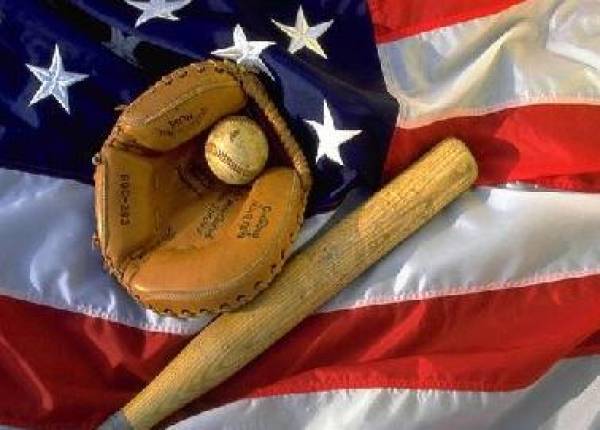Baseball is Hurt Because It's Not a Betting Sport

The calendar says this weekend is opening day, even if I can still see my breath. But, honestly, I've been too caught up in Jay Cutler's and Josh McDaniels' he said/he said, Gossip Girl audition to notice. Spring training has been what baseball always seems to be until cold and flu season rolls around again, a pleasant bit of background noise.
Now, I have a theory about why baseball long ago became the day's second or third most interesting story, unless a Yankee is busted: It is a horrible sport to bet on.
Just check out the numbers. In the 20 years the Nevada Gaming Control Board has tracked sport-by-sport betting totals, the amount bet on baseball has increased from $383.7M (1988) to $522.2M last year. Football's total-the state doesn't make a distinction between college and pro-has grown from $522.9M to $1.12B. As the Gaming Control Board's crack analyst Frank Streshley pointed out to me, "That's billion, with a B."
Let's look at it another way: Back in 1988, baseball's wagering total accounted for 26% of Nevada's sports betting take. Football's was 34%. Today baseball makes up just 20%, while basketball-college and pro-brings in 28% and football blows them both away with 43%. These days, sports books on The Strip get six figures in action for nearly every NFL game, while some baseball games barely get a couple hundred bucks. As one wiseguy told me, "Betting baseball just sucks."
He's right. The game is at a huge disadvantage compared to football, whose overwhelming popularity has been driven by the fact it is so bettor friendly. Let's take a look at some of the differences:
Point Spread vs. The Money Line: The Bears are minus-3 over the Packers. How easy is it to explain what this means to someone spending the weekend in Vegas? This easy: Put $110 on the Bears and if they win by more than three, you win $100 (the house gets a 10% commission.) Compare that to a money line bet on, say, the Yankees minus-145 against the Orioles. What gives? Do the Yankees have to win by 145 runs? No, but you have to bet $145 to win $100. Not only can it be confusing, it costs more just to play. "When people come to Vegas they know what the point spread means, they have been exposed to it," says Hilton bookmaking boss Jay Kornegay. "The money line takes time to explain. Plus, the public wants to bet the favorite. And in baseball, to do that, you have to risk more to win."
Once a Week vs. Once a Day: Fans want to have opinions when they bet. They want to think they have a chance, that they aren't just suckers throwing away their money. And it's a lot easier to be confident about the Steelers-Chargers when you've had a week to research than it is to be sure about the Cubs-Cardinals when you've had just 24 hours. "Monday to Friday people get to read USA Today and pick up info from the touts to prepare for Saturday and Sunday," says the wiseguy. "Or look at it this way: Handle for the NCAA tourney is always highest that first Thursday and Friday and falls off during the weekend. How come? The public has three days to feel confident about their bets."
Key Numbers vs. Statistical Overload: To gamblers, baseball is a victim of the one thing so many fans love about it: There's a stat for every situation. You've got VORP, WARP, PECOTA and UZR to go along with RBIs, HRs and ERA. Those text-friendly creations may be great for fantasy geeks, but they completely spoil a bettor's brew. "Baseball has so many stats, you might think that 10 of them are a perfect formula for winning bets," says Kornegay. "But there are 10 others that could be just as good you're not even considering." Football's statistical renaissance is still in its infancy. Guys like KC Joyner and Football Outsiders are making the game SABRE-friendly, but the key numbers that bettors-wiseguys and public alike-rely on are still limited. "Mathematically, football is just easier," says the wiseguy. "You can eyeball a game and instinctively know if the spread is right."
So, I've got an idea: Let's change the way people gamble on baseball, which has been the same since Damon Runyon made everyone sound like a sharp. Let's make it more bettor-friendly. I think bookies should combine each team's average runs, hits and errors to create a point spread. Tell me you wouldn't stay tuned until the final out if every hit potentially impacted your bet? Or maybe you've got a better idea. If you do, send it to me.
Together, maybe we can change the game. Perhaps before Jay Cutler is traded.
Chad Millman, ESPN













